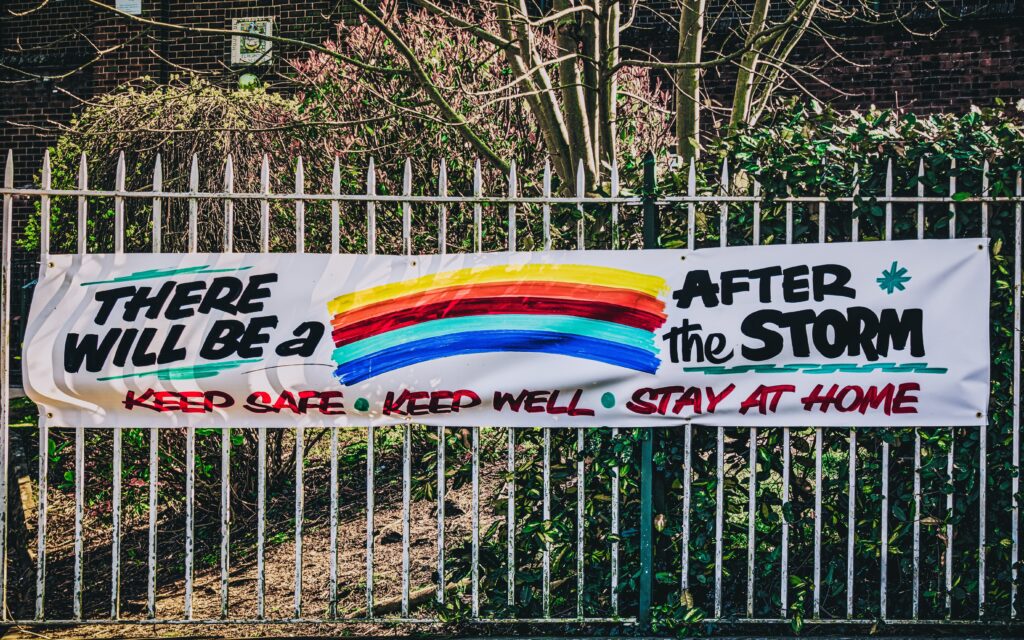
Here’s the thing: I know that I am lucky.
As coronavirus holds our country and our global community hostage, I’m supremely grateful to have health insurance, a job whose tasks I can fulfill remotely, and a safe home in which to isolate. If pandemic-related-suffering was an Olympic sport, I wouldn’t qualify.
But, as things are, suffering isn’t a competitive activity, and so even as I am aware of my good fortune, I’m also bummed. I just canceled my flight for a long-weekend trip to visit two of my best friends, I’m seeing another vacation that I had recently finished planning vanish before my eyes, and a speaking invitation that I was thrilled to have been offered has been postponed indefinitely.
RELATED: How I’m Staying Positive During the COVID-19 Pandemic
Along with my disappointment over canceled plans, I’m anxious. I’m worried about my aging parents and my siblings who work in healthcare, and I’m worried that my employer won’t be able to afford me indefinitely, even if I can do good work remotely. (If worrying were an Olympic sport, I’d be a contender for the gold.)
It’s normal to be disappointed and anxious during uncertain times, but the good news is that there are things we can do to help our emotional state as we live through our current reality. One of those things is to help someone else. Research shows that serving others, in both big and small ways, does us good, from giving us a sense of meaning and purpose, to helping regulate our emotions, to decreasing symptoms of depression.
With that in mind, here are three ideas of ways to be of service to others, from a distance, of course:
Reach out to someone for whom isolating may be especially difficult
As I sat writing this article, my husband jokingly sent me the link to an article titled “Can Your Marriage Survive the Coronavirus?“ If it’s tough to be cooped up in a small space with someone whom you desperately love and generally enjoy, it’s excruciating to be confined with challenging roommates, difficult family members, or other complicated relationships.
Peruse your mental Rolodex and consider who in your life might be isolating in a less-than-ideal living situation right now. Maybe it’s the cousin who moved home and now shares a room with his 10-year-old brother. Maybe it’s the co-worker whose apartment-mates are giving her the silent treatment. Maybe it’s the friend who has a rocky relationship with her parents and knows that the next few months are going to include a lot of fights. Call, text, send snail mail, email: do whatever it takes to let this person know that you are thinking of them and are available as a listening, compassionate ear.
Write a letter to an elderly or chronically ill relative or friend
Not all people are impacted by coronavirus and social isolation equally. Though millennials certainly aren’t immune to the virus and ought to be taking all the standard precautions seriously, we may be less mentally and emotionally burdened during this trying time. Consider who in your life is particularly vulnerable — maybe your friend with an autoimmune disease, a grandparent or an elderly acquaintance from church, or a former teacher who is fighting cancer — and send them a card letting them know that you are thinking of them. Your letter isn’t going to magically encircle the person with a coat of armor, but the gesture of care could lift their spirits.
Be a good neighbor
Walkers enthusiastically waving to other folks out for exercise as they cross over to the opposite side of the street, neighbors shouting greetings through adjacent open windows, kids covering the sidewalk with cheerful messages and colorful drawings: The kindness that I’ve recently witnessed in my typically reserved urban neighborhood has been unprecedented, and it has inspired me to ask what I can be doing to support my community members.
Ideas that I’ve brainstormed include texting my neighbors before my next trip to the grocery store to ask what I can pick up for them, spending more time on my porch and striking up a conversation with people who pass by, and sharing my contact information with the families on my street so that they can reach out if they need help. These are little things, but small actions can go a long way in the effort to communicate care and spread cheer.
At times when we’re feeling disappointed, anxious, or otherwise bad, it can be tempting to retreat inward. But if you can turn that impulse upside-down and instead take action to help someone else, not only will you extend goodwill into the world, you could also boost your mood. It’s worth a try!